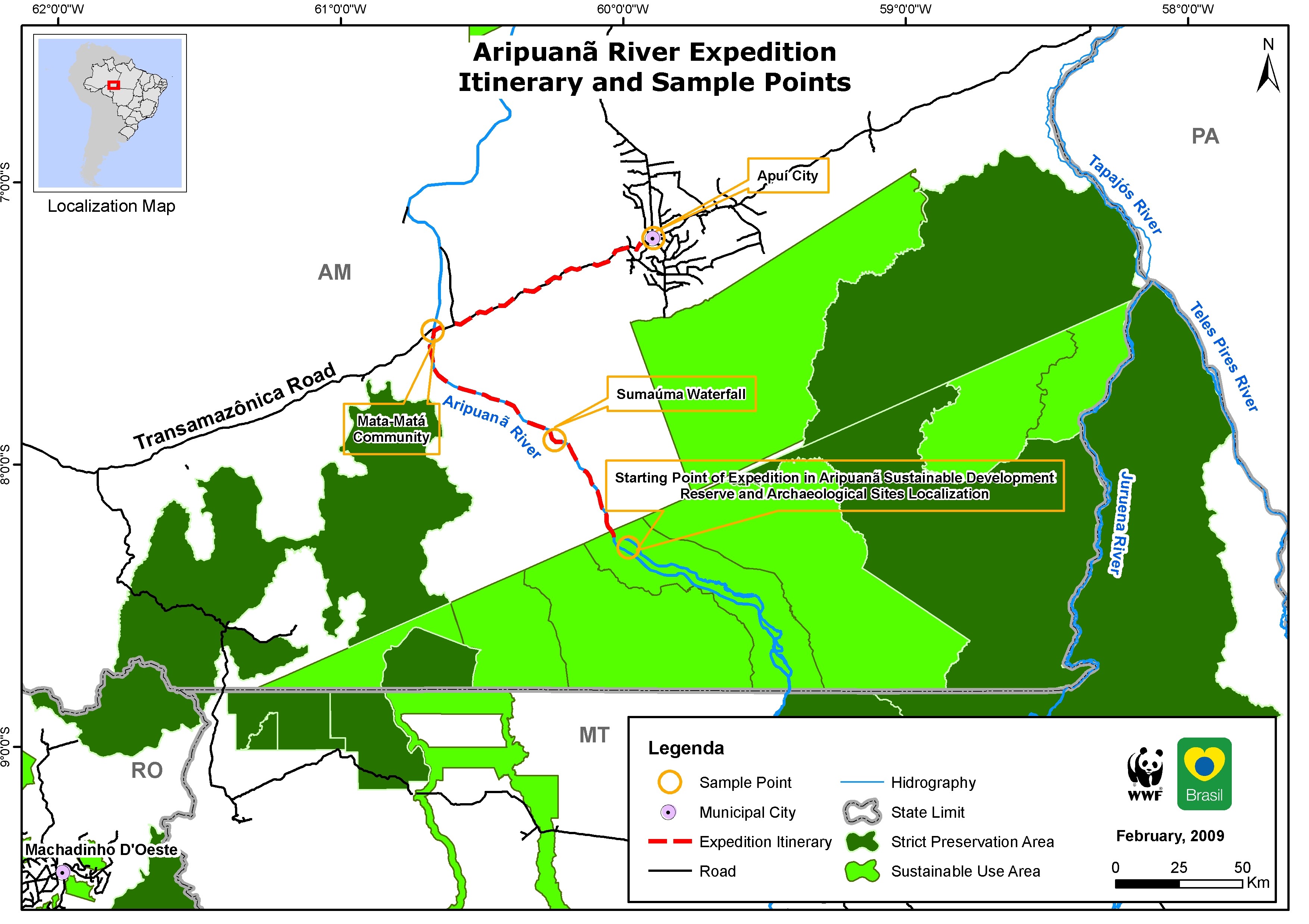Ecotourism could help the Amazon reduce deforestation and handle climate change
Posted on March, 24 2009
Responsible ecotourism in the Amazon tributary of the Aripuana River, could help reduce deforestation and protect one in 10 known species on Earth.
Responsible ecotourism in the Amazon tributary of the Aripuana River, could help reduce deforestation and help to protect one in 10 of the world's species.WWF was party to an expedition to assess ecotourism prospects in the Amazon, home of the world’s largest water basin and most diverse rainforest.
The expedition party found that responsible tourism could be a successful way to engage local communities currently relying on slash and burn agriculture by offering an alternative livelihood.
Ecotourism is little practiced in the Amazon, partly due to the expense but also due to a lack of information about places where implementation is possible.
“When carried out in an ecologically correct manner ecotourism is a low impact environmental activity that contributes to maintenance of species and natural habitats,” said WWF-Brazil’s General Secretary Denise Hamú.
“It also promotes the value of culture and involves local communities.”
Deforestation is by far the most dangerous threat to the Amazon, home to one in 10 known species on Earth.
Victim and Villain
Human settlement and agriculture prompt people to slash and burn hectares of precious trees, causing habitat loss for hundreds of species and contributing to massive CO2 emissions.
The Amazon is both a victim and a villain of climate change with scientists warning that a 2C spike in temperatures will severely damage the vast forests; and a 4C rise would effectively kill it. But an estimated 60% of Brazil's emissions are directly linked to deforestation.
The ecotourism project under consideration would be mainly carried out by Brazil’s State Secretary for the Environment and Sustainable Development (SDS) of Amazonas and State Center for Climate Change.
In many other countries, such as Madagascar, responsibly run tourist sites are already producing good results and help to reduce the rate of deforestation.
Reducing deforestation is also, according to scientists, one of the cheapest way to combat climate change.
“You usually need a large initial investment to get something started if you want to offer safe, interesting and comfortable ecotourism options,” said Therese Aubreton, a researcher from SDS specializing in ecotourism. Aubreton participated in an expedition held between February 17 and 24 aiming to analyze the viability of the installation of ecotourism facilities along the Aripuanã River, in the Aripuanã Sustainable Development Reserve and its adjacent areas.
Difficult Access
The remote location of many beautiful and interesting places in the Amazon, some of which can only be reached by helicopter, together with a lack of transport and communication have to date prevented the development of tourism potential in this region.
WWF-Brazil is supporting projects that study these potential areas in order to, amongst other aims, attract more investment and enable successful ecotourism projects.
“More than just identify the natural vocation of Amazon for ecotourism, the expedition also studied the enterprise potential and the return for the local population from the reserve, the creation of opportunities for qualification and work in the tourist business,” Brazil’s Amazonas State Secretary for the Environment and Sustainable Development, Nádia Ferreira said
According to a study carried out by the Copérnico Institute of Holland’s Utrecht University, successful ecotourism projects could yield an average of US$3.26 to US$6.58 per ha of standing forest per year.


